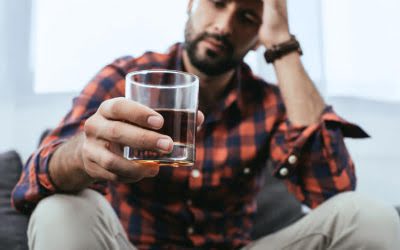Alcohol use was protective against CHD for subjects in most countries, except for people of South Asian ethnicity living in South Asia (India, Bangladesh, Nepal, Pakistan, and Sri Lanka). INTERHEART results also suggested that the protective effect of any alcohol use against MI was greater in women and those over age 45. Finally, data from INTERHEART support the finding that the risk of MI is increased in the 24 hours after consumption of 6 or more drinks, suggesting that binge drinking increases MI risk (table 1). As individuals age, their bodies metabolise alcohol differently, often leading to increased sensitivity to its effects. Older adults may experience more pronounced increases in blood pressure from even moderate alcohol consumption. Therefore, it is essential for older Australians to be particularly cautious and to consult with healthcare providers regarding safe drinking levels.
- If the dose of a study was not reported in the article and the study author did not respond to our request, we excluded that study.
- Alcohol can stimulate the sympathetic nervous system, leading to increased heart rate and blood vessel constriction.
- You can incorporate moderate activities like brisk walking, cycling, or swimming.
Koskinen 1991 published data only

Although results related to levels of alcohol consumption and stroke events are less clear, some conclusions can be drawn. Approximately 1 to 2 drinks per day may have no effect on or lead to a slight reduction in stroke events; however, greater daily alcohol levels increase https://ecosoberhouse.com/ the risk for all stroke events and incident stroke types. In terms of stroke subtypes, compared with nondrinkers, current alcohol drinkers have an increased risk (~14 percent) for hemorrhagic stroke (Ronksley et al. 2011). Furthermore, our project was only focussed on hypertensive subjects, whereas normotensives were also admitted in Roerecke 2017.
- We included one trial (PATHS 1998), where trial participants were randomised to either a cognitive‐behavioural intervention to reduce alcohol intake or no intervention.
- Two review authors (ST and CT) performed data extraction independently using a standard data collection form, followed by a cross‐check.
- An immediate effect of alcohol ingestion is vasodilation in some vascular beds.
- Prioritizing mindful, moderate habits better supports healthy blood pressure.
- The funder of the study had no role in study design, data collection,data analysis, data interpretation, or writing of the report.
Authors’ conclusions
In order to investigate the likelihood of reporting biases, we planned to perform funnel plots (trial effect against standard error) if there were at least ten studies included in the meta‐analysis for a particular outcome measure. Enjoying alcohol socially in reasonable amounts can boost your mood and help you bond with others. But if you drink alone, or down multiple drinks a day, it could turn into an unhealthy habit. If you can’t control it, it may lead to a condition called alcohol alcohol lowers blood pressure use disorder.
- Rather than trying to cut out alcohol completely, allow yourself to fully enjoy one or two drinks on designated days per week.
- A diet rich in whole grains, fruits, vegetables, and low-fat dairy products and low in saturated fat and cholesterol can lower high blood pressure by up to 11 mm Hg.
- The general consensus is more research is needed, especially in older adults.
Cochrane

Reducing salt in your diet remains one of the most effective ways to lower high blood pressure. According to health guidelines, it’s recommended that individuals limit their sodium consumption to 2,300 mg per day, with an ideal target of 1,500 mg per day. The revised guidelines also call for earlier medical intervention, recommending treatment for patients diagnosed with stage 1 hypertension rather than waiting for more advanced symptoms to appear. For the first time in nearly a decade, the American Heart Association and the American College of Cardiology have rolled out new guidelines to help combat what is alcoholism high blood pressure—and one of their biggest messages is about alcohol. We classified 11 studies as having uncertain risk of bias because the funding source or conflicts of interest were not reported (Chen 1986; Fazio 2004; Foppa 2002; Karatzi 2005; Koenig 1997; Mahmud 2002; Maule 1993; Rosito 1999; Rossinen 1997; Stott 1987; Stott 1991). Dumont 2010, Karatzi 2013, Kawano 1992, and Williams 2004 reported reasons for participant withdrawal and excluded their data from the final analysis.


 At vero eos et accusam et justo duo dolores et ea rebum.
At vero eos et accusam et justo duo dolores et ea rebum.